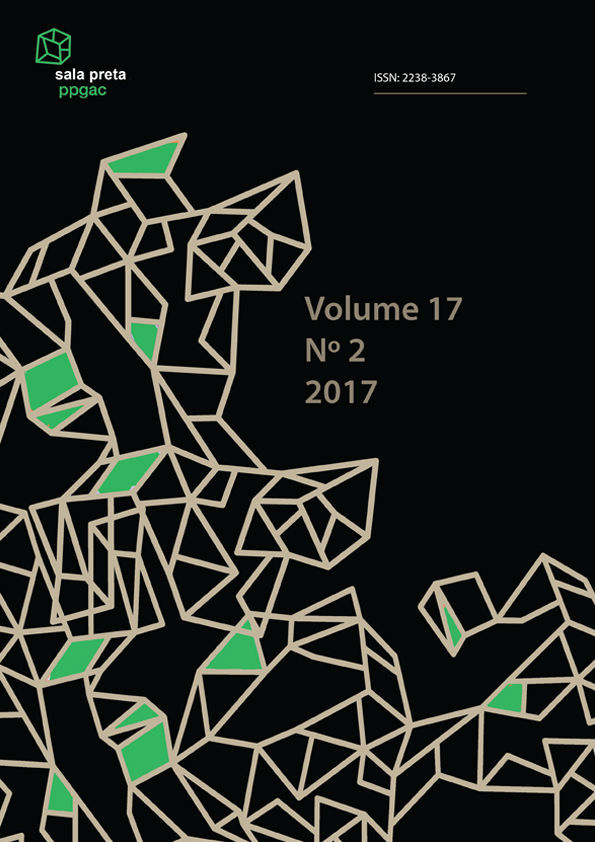Illustrious Mr. Pirandello took the train in Central do Brasil Station
DOI:
https://doi.org/10.11606/issn.2238-3867.v17i2p289-303Keywords:
Modernism, Audience formation, Intellectuals in BrazilAbstract
The passage of Teatro d’Arte Company on Brazilian stages, in the triennium (1925-1928) when Pirandello assumed its direction, triggered a controversial debate that endured far beyond modernism, following the fame of the Italian along the modernization of theatre in Brazil. This essay focuses on the departure of the literate from the literary enclosure to enter show business, coinciding with the Latin American enterprise. As well as for other distinguished travellers, as Marinetti, who visited Brazil a year before, in 1926, his lectures and interviews (especially the one given to Sérgio Buarque de Holanda) gave occasion to mirror perceptions of the Brazilian cultural process, whose imaginary was also defined by contagion from traveller’s opinions. This research contributes to calendar of events in honour of Pirandello’s 150th birth anniversary.Downloads
References
A COMPANHIA Jaime Costa representou “cosi é… se vi pare”, em homenagem a Luigi Pirandello. Folha da Manhã, São Paulo, 8 set. 1927. n. 833, p. 9
A CONFERÊNCIA do dr. Menotti Del Picchia no Municipal. Correio Paulistano, São Paulo, 17 fev. 1922. n. 21058, p. 2.
ALVARO, C. Introdução. In: PIRANDELLO, L. Novelle per un anno. Milano: Mondadori, 1956.
ANDRADE, O. Anunciação de Pirandello. Correio Paulistano, São Paulo, 29 jun. 1923. n. 21542, p. 3.
BARRETO, L. Transatlantismo. Careta, Rio de Janeiro, ano XV, n. 733, 8 jul.1922
BOPP, R. Movimentos modernistas no Brasil. Rio de Janeiro: Livraria São José, 1966.
CAMPOS, C. Os rumos da cidade. Urbanismo e modernização em São Paulo. São Paulo: Senac, 2002.
CANCLINI, N. G. Culturas híbridas. Estratégias para entrar e sair da modernidade. São Paulo: Edusp, 1997.
DE LARA, C. De Pirandello a Piolim. Alcântara Machado e o teatro no modernismo. Rio de Janeiro: Ministério da Cultura, 1987.
HELLYESSE. Sete dias de theatro. Correio da Manhã, Rio de Janeiro, 11 set. 1927. n. 10018, p. 15.
HOLANDA, S. B. O futurismo paulista. Revista Fon-Fon, Rio de Janeiro, n. 50, 10 dez. 1921.
______. Conversando com Pirandello. O Estado de São Paulo, São Paulo, 31 dez. 1988. p. 46.
MOTTA FILHO, C. Introdução. In: PIRANDELLO, L. Novelas escolhidas. São Paulo: [s.n.], 1925.
PICCHIA, M. Da esthetica. Seremos plagiarios? Correio Paulistano, São Paulo, 10 abr. 1920. n. 20391, p. 1.
PIRANDELLO, L. Do teatro no teatro. Organização Jacó Guinsburg. São Paulo: Perspectiva, 2009
RODRIGUES, N. A menina sem estrelas. São Paulo: Companhia das Letras, 1993.
SCHWARTZ, J. Vanguardas latino-americanas: polêmicas manifestos e textos críticos. São Paulo: Edusp, 1995.
TEMPORADA Pirandello, no Municipal. Correio da Manhã, Rio de Janeiro, 16 set. 1927. n. 10022, p. 5.
Downloads
Published
Issue
Section
License
Os leitores são livres para compartilhar, copiar e redistribuir os textos publicados na Sala Preta, sem fins comerciais e em qualquer suporte ou formato, desde que sejam dados os créditos apropriados ao(s) autor(es) e à Revista. Podem também adaptar, remixar, transformar e criar a partir deste material, desde que distribuam o material derivado sob a mesma licença do original – e mantenham a menção explícita ao(s) autores e à Revista Sala Preta.
Ao submeter um artigo à Sala Preta e tê-lo aprovado para publicação os autores concordam com os termos da Licença Creative Commons Atribuição-NãoComercial-CompartilhaIgual 4.0 Internacional.


